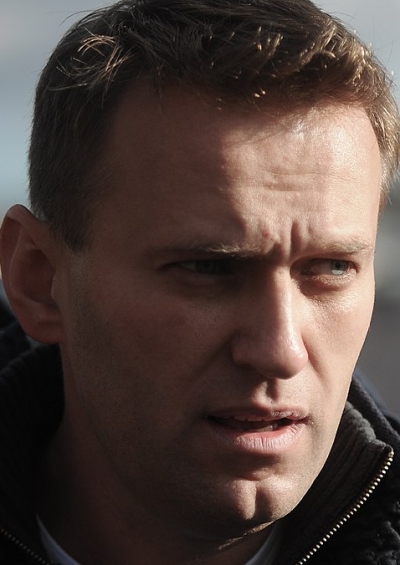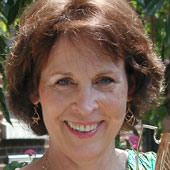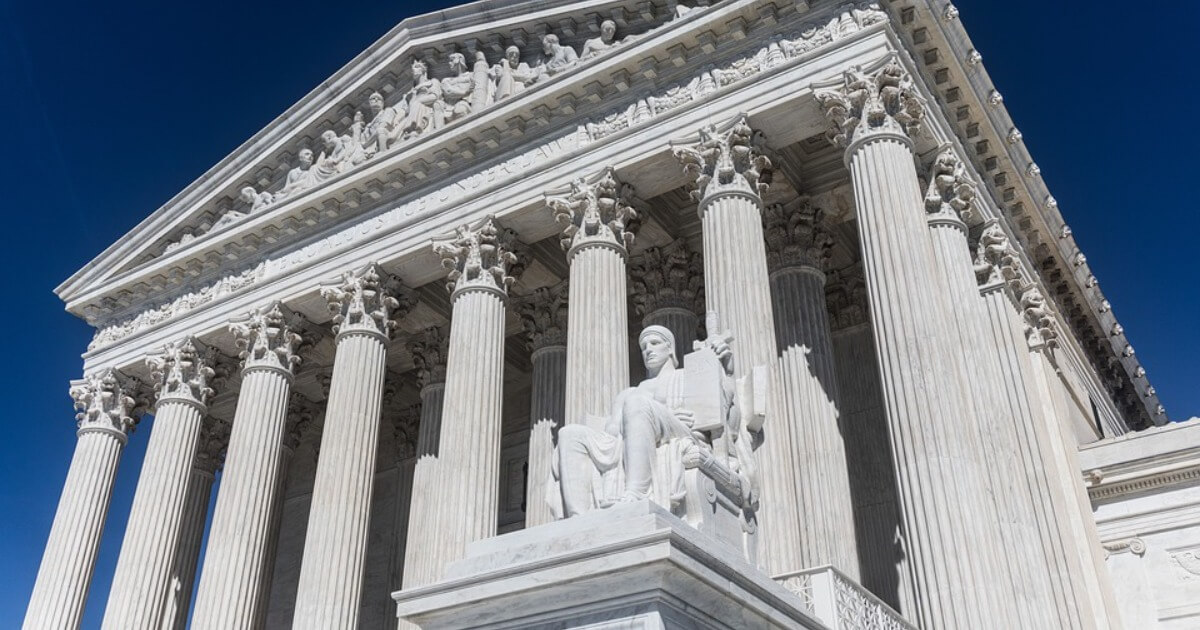Alexei Navalny: The Freest Man in the World
The recurring question of what freedom means in the political and the everyday world.
February 10, 2021

Alexei Navalny is the freest man in the world.
When you read Navalny’s address to the Russian court on February 2, you cannot help but burst out laughing — a number of times, in fact. Then you catch yourself and say, “How can I laugh now? This guy’s in deep trouble.” Yes, he is.
It would be wrong to lessen the criminal nature of the kangaroo court proceedings that were held against him in Moscow. No doubt, if there were any justice in Russia, the judgments rendered against Navalny would be reversed — and he would be physically freed.
But looking beyond that, a reading of his words plummets something far deeper than the outward circumstances.
Not a laughing matter — and yet…
Why does one laugh when reading Navalny’s words? First, for their sheer use of irony. And second, because one senses immediately that those to whom his words are directed are totally incapable of understanding that irony.
Totalitarian regimes and strongmen don’t “get” irony. That is the tool of the opposition to them. Nevertheless, Navalny makes the convoluted and contrived judicial reasoning of Putin’s puppet judges look like exactly what it is: Heavily rigged thinking to appease an authoritarian regime.
Nailing Putin
I also shook my head in pure admiration and amusement as Navalny humorously — but mercilessly — nailed Vladimir Putin as the man behind the entire campaign the Russian President has directed against him:
The explanation is one man’s hatred and fear — one man hiding in a bunker. I mortally offended him by surviving. And then, I committed an even more serious offense: I didn’t run and hide.
In his speech before the court, Navalny demonstrated immense courage. Authoritarian leaders are always cowards — bullies and cowards. They want people to fear them — and cannot bear those who don’t.
Very skillfully — and also startlingly — Navalny points to Putin hiding “in a bunker,” and implicitly references Hitler’s last days — crouching in his bunker in Berlin and attempting to deny what was happening all around him above ground.
Likewise, Navalny explains that an investigation proved that Putin and the Russian Security Service were behind his attempted murder by poisoning. That proof — smeared across headlines internationally – is “driving this thieving little man in his bunker out of his mind.”
The unspoken one
Given that Putin won’t even pronounce Navalny’s name out loud, one has to wonder: Does Putin’s made-for-TV-consumption pseudo-Russian Orthodox religiosity compel him mystically to believe that pronouncing his opponent’s name will cause Navalny to materialize in front of him?
It is as if the cowardly Putin, by declaring him the unspeakable one, surreally believes that this will ensure that he will avoid his nemesis.
Putin, the avenger and the avoider
In lawyerly fashion, Navalny explains to the court that their mentor and boss is a little man — professionally and otherwise. As a politician, “he’s never participated in any debates or campaigned in an election,” being that “he’s just a bureaucrat who was accidentally appointed to his position.”
This is where Navalny issues his challenge to the Russian people. The question to them is, Do you want to continue this charade at democracy?
Global connections
And, in a global context, one cannot escape noticing that Navalny, in effect, says of Putin exactly what Joe Biden said of Xi Jinping: “He doesn’t have a democratic (small d) bone in his body.”
Navalny asserts about Putin that “Murder is the only way he knows how to fight.” He effectively calls on Russians — and the world — to see Putin for what he is and what he does.
Vladimir, the underpants poisoner
Then comes the moment in Navalny’s speech before the court that is positively reminiscent of Vaclav Havel — the Czech playwright (not the president).
It is also the occasion of the biggest laugh: “He’s going down in history as nothing but a poisoner. We all remember Alexander the Liberator and Yaroslav the Wise. Well, now we’ll have Vladimir the Underpants Poisoner.”
The Underwear Poisoner! With that, Navalny knocks the ball out of the park. Putin, so clearly a victim of the little man syndrome (in the company of many luminaries of history, including Napoleon), is clearly obsessed and insecure about his looks and his sexual prowess (remember the photos of him baring his chest?).
Navalny’s imagery conjures up little man Putin’s worst nightmare – being figuratively caught with his pants down is the worst!
And can’t you see it! The Underpants Poisoner kissing the portrait of the Virgin Mary! Pussy Riot says hello:
“Virgin Mary, Mother of God, banish Putin, banish Putin,
Freedom’s phantom’s gone to heaven,
KGB’s Chief saint descends
To guide the punks to prison vans.
* * *
Don’t upset His Saintship ladies,
Stick to making love and babies.
* * *
Virgin Mary, Mother of God,
Be a feminist we pray thee.
* * *
Fight for rights, forget the right — join our protest holy virgin.
* * *
Virgin Mary, Mother of God, banish Putin banish Putin!”
Putin’s dumbos, revealed
The fact that Navalny and his team managed to get one of Putin’s hitmen to admit on videotape that members of Russia’s Federal Security Service had put poison in Navalny’s underwear — which almost killed him — must have killed Putin in its very own way.
To take that one fact and to make it the indelible label of Vladimir Putin is not only brilliant, but also courageous.
Navalny’s preternatural sense of personal freedom
That entire episode also demonstrates freedom on a very profound level. Navalny said:
The main thing in this whole trial isn’t what happens to me. Locking me up isn’t difficult. What matters most is why this is happening. This is happening to intimidate large numbers of people. They’re imprisoning one person to frighten millions.
Navalny goes on to tell the truth about the mess that the Russians are in, a people living unnecessarily in poverty — amidst great wealth in natural resources — and intimidated by oligarchs and authoritarians.
The exceptions are “the very best…people who aren’t afraid – people who don’t look the other way.”
Gloria Steinem’s and Hannah Arendt’s wisdom
As to the approach Navalny is applying to Russia, the American feminist Gloria Steinem comes to mind: “The truth will set you free — but first it will piss you off.”
Navalny and his allies are pissed off — with every reason — and they refuse to look the other way.
Hannah Arendt also knew something about freedom, having fled the Nazis. Freedom, Arendt explains, is:
…actually the reason that men live together in political organization at all. Without it, political life as such would be meaningless. The raison d’etre of politics is freedom and its field of experience is action.
Navalny and his supporters — as people of action — meet that high mark.
Conclusion
The understanding and use of freedom is the only tool with which to confront the cowardly strongmen of this world — whether their names are Putin, Erdogan, Xi, Bolsonaro or Trump.
They have absolutely no understanding of freedom. Rather, they are caught in their silos of money, greed and power and cannot escape them.
They, therefore, are the real prisoners. Prisoners of their own self-delusions and pathological narcissism.
Finally, as far as we “regular” people are concerned, it is advisable to note Arendt’s phrase, “as a fact of everyday life” – i.e., that freedom is a matter of everyday life. Freedom calls upon every person to examine their own prisons of thought and take critical action.
Can each person free themselves of the delusions and of the strictures that keep them from acting truly freely? Do we have that courage?
One thing is for sure: Whatever happens to him, Alexei Navalny is a free man.
Takeaways
Totalitarian regimes and strongmen don’t “get” irony. That is the tool of the opposition to them.
Navalny points to Putin hiding in a bunker -- referencing Hitler’s last days in his bunker in Berlin, attempting to deny what was happening all around him.
Putin won’t even pronounce Navalny’s name out loud. It is as if Putin, by declaring Navalny the unspeakable one, surreally believes that he can avoid his nemesis.
Navalny issues a challenge to the Russian people: Do you want to continue this charade at democracy?
In a global context, Navalny, in effect, says of Putin what Joe Biden said of Xi Jinping: “He doesn’t have a democratic bone in his body.”
Putin, a victim of the little man syndrome, is clearly insecure about his looks and his sexual prowess. Navalny’s imagery conjures up little man Putin’s worst nightmare.
That Navalny and his team managed to get one of Putin’s hitmen to admit on videotape that members of Russia’s Federal Security Service had put poison in Navalny’s underwear, must have killed Putin in its very own way.
Freedom is also a matter of everyday life. Freedom calls upon every person to examine their own prisons of thought and take critical action.

